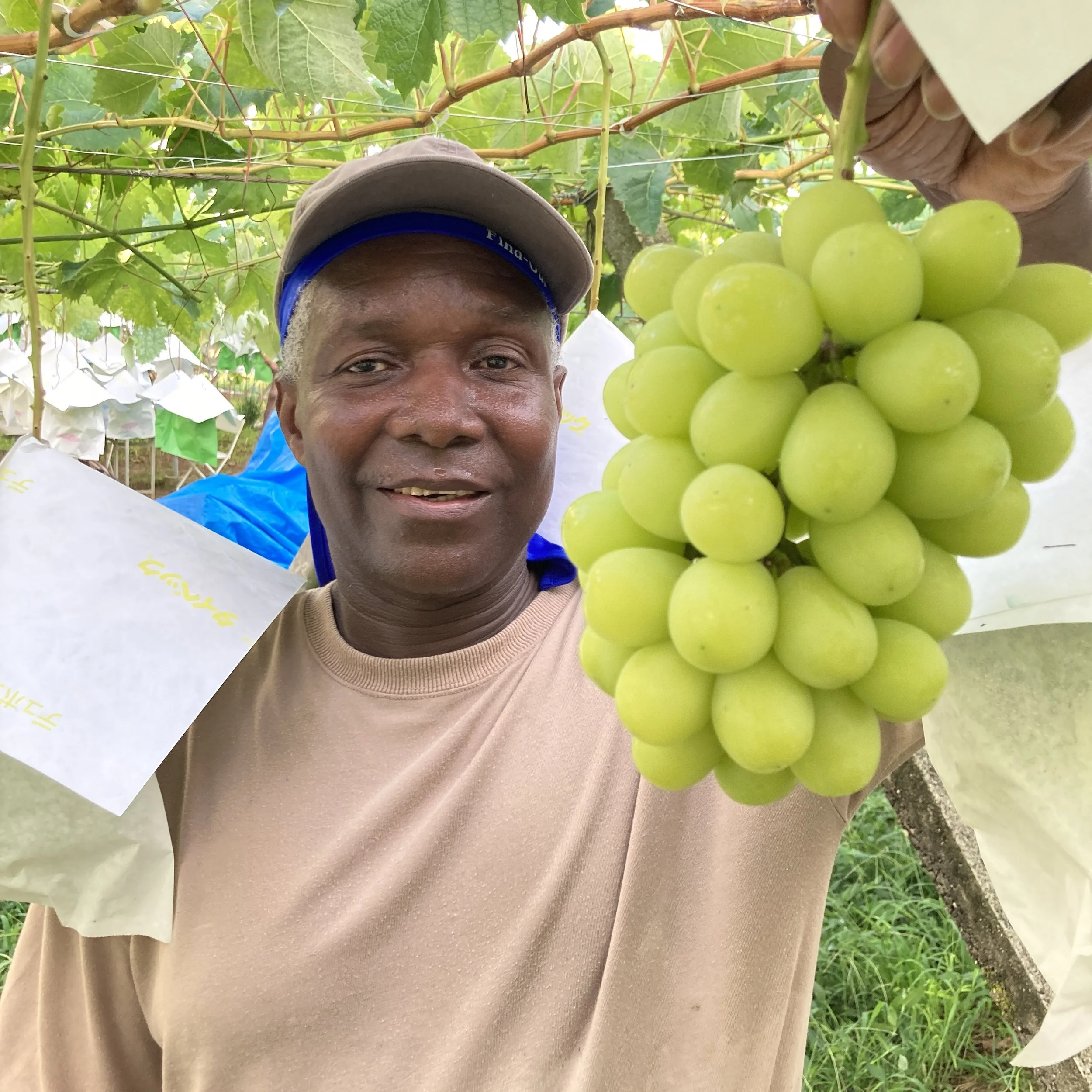From Woodwork in Trinidad to Vine Work in Japan: Franklyn Hutchinson’s Beautiful Story of Becoming A Grape Farmer in Yamanashi
Season 1 | Episode 22
MORE ABOUT FRANKLYN
Franklyn Hutchinson is a resilient and dedicated grape farmer living in Yamanashi Japan. Having embarked on a journey to create a life of self-reliance, Franklyn has faced and overcome numerous challenges, particularly in the world of group farming. After relocating to Japan from Trinidad, Franklyn was determined to make the most of life in a foreign country, learning the language, understanding the culture, and most importantly, becoming a self-sufficient agriculturalist and advocate for growing your own food.
“The public should be able to grow their own food. Like at least tomato... cucumbers, it’s so easy to grow. Right? And many people have land, they have spaces, but they just don’t grow anything. Right? In Japan here, people grow rice in their backyard. And I would like to see even people in my country, in some countries where you could grow, people grow food anywhere you could grow food, even in a container. And it’s so much food, we have the food to sustain like another planet, but it’s just the management of it. So sustainability is not only like sustaining. You have to also, it’s also management, you know. How you manage what you have and how you manage the soil. People have a lot of soil, a lot of land, a lot of a big yard, but they don’t grow anything. Even if it’s one item you could grow for yourself, you grow. And I think this is what I call sustainability of growing your own food to sustain your own self. Sustain your own body. I think it’s important that people grow their own food, even if it’s 1 % of what you eat.
”



